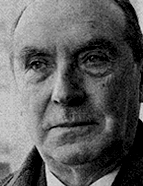

In an interview published in the Diário de Lisboa on 5th January 1949, he did not mince his words: “Now is the time to quietly put an end to a situation that embarrasses us as Europeans – we continue to be the kaffir of Europe, a term used to refer to us in the 17th century.” He was arrested the following day for “attacking national spirit and decorum and insulting the Government of the Nation” but was released on bail on 11th January.
As a historian of literature, Lapa spoke out against the determination to restrict historical explanation to the search for a single original cause (see Le Goff, “História” [“History], 1984, 159) and often dealt with the issue of origins from a plural perspective. Although this was a subject of interest to him among several aspects of Portuguese medieval literature, he had first explored this phenomenon in Galician-Portuguese lyric poetry in his doctoral thesis, self-published as the first volume of the series “História da Língua e da Literatura Portuguesa” [“History of Portuguese Language and Literature] (with Seara Nova as depositary]. The title signals the relevance of the study of origins at the time, as evidenced in works such as Origini della poesia lírica in Italia [Origins of lyric poetry in Italy] (1899) by Giovanni Alfredo Cesareo and Les origines de la poésie lyrique en France [Origins of lyric poetry in France] (1904) by Alfred Jeanroy, which Lapa applied to the Galician-Portuguese lyric (but not solely, as shown through his participation in the discussion on the primacy of the Portuguese text of the Demanda do Santo Graal [Quest of the Holy Grail] [Miscelânea de Língua…, 1982, 303-340]. The aim was to determine how Romance lyric poetry had emerged and, within it, the lyric poetry of each country of Neo-Latin Europe.
Half of Lapa’s doctoral thesis critically and circumstantially addresses each of the major theories surrounding the topic: the Arabic, the folkloric, the medium Latinist and the liturgical, the latter being his most favoured. Yet this preference never prevented him from appreciating a combination of factors at the root of lyric poetry, and in a paper presented at the international congress of writers sponsored by the committee for the 4th centennial celebrations of the city of São Paulo, Lapa argued, for example, that in respect of versification, troubadour lyric has no single origin (Lições de literatura portuguesa [Lessons of Portuguese Literature], 1981, 53). Liturgical theory, on the other hand, by enabling the study of parody, a relevant means of textual exploitation in the Galician-Portuguese lyric, encouraged Lapa to consider bilingualism phenomena in several poetries (a sign of confluence of diverse poetic traditions).
